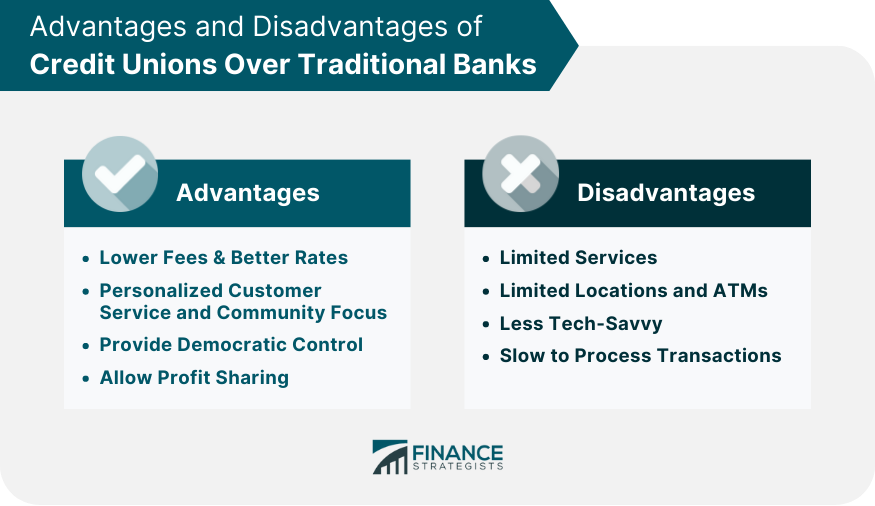Join a Credit Union in Wyoming: Personalized Financial Solutions for You
Join a Credit Union in Wyoming: Personalized Financial Solutions for You
Blog Article
The Ultimate Overview to Comprehending Lending Institution

Credit scores unions stand as unique monetary entities, rooted in principles of shared support and member-driven procedures. Past their fundamental values, recognizing the detailed functions of credit score unions includes a deeper exploration. Unraveling the intricacies of membership qualification, the evolution of solutions supplied, and the unique advantages they bring calls for a thorough exam. As we browse through the intricacies of credit score unions, an informative trip awaits to shed light on these member-focused establishments and how they differ from conventional financial institutions.
What Are Credit Rating Unions?
Lending institution are member-owned banks that offer a series of financial services to their participants. Unlike conventional banks, cooperative credit union operate as not-for-profit companies, meaning their key emphasis gets on offering their participants instead of maximizing earnings. Participants of a credit score union typically share an usual bond, such as benefiting the same employer, coming from the exact same area, or belonging to the same company.
Among the key advantages of lending institution is that they typically provide higher rates of interest on interest-bearing accounts and lower rate of interest on financings compared to financial institutions. Wyoming Credit Union. This is since cooperative credit union are structured to profit their participants straight, allowing them to pass on their profits in the kind of better rates and fewer fees. Furthermore, lending institution are understood for their personalized customer care, as they focus on building relationships with their participants to recognize their special monetary demands and goals
History and Evolution of Lending Institution
The roots of member-owned financial cooperatives, known today as lending institution, trace back to a time when areas sought options to traditional banking establishments. The concept of lending institution come from the 19th century in Europe, with Friedrich Wilhelm Raiffeisen commonly credited as the pioneer of the cooperative banking activity. Raiffeisen established the very first recognized credit score union in Germany in the mid-1800s, stressing area assistance and self-help principles.
The evolution of lending institution proceeded in North America, where Alphonse Desjardins developed the very first lending institution in Canada in 1900. Quickly after, in 1909, the very first U.S. lending institution was created in New Hampshire by a group of Franco-American immigrants. These early cooperative credit union operated the essential principles of shared aid, democratic control, and participant ownership.
With time, lending institution have expanded in popularity worldwide as a result of their not-for-profit structure, emphasis on serving members, and offering competitive monetary services and products. Today, credit history unions play an important function in the financial industry, offering community-oriented and available financial options for services and people alike.

Subscription and Qualification Requirements
Subscription at a lending institution is typically restricted to people fulfilling specific qualification requirements based on the institution's beginning principles and regulative needs. These criteria typically include elements such as geographic place, employment condition, membership in particular organizations, or association with particular teams. Credit history unions are known for their community-oriented approach, which is mirrored in their subscription requirements. Federal Credit Union. Some credit rating unions might only offer individuals who live or more info here function in a particular location, while others might be customized to employees of a particular business or members of a specific association.
Additionally, cooperative credit union are structured as not-for-profit organizations, implying that their primary objective is to offer their participants as opposed to create earnings for investors. This concentrate on participant service usually converts right into even more personalized interest, lower costs, and affordable interest prices on savings and fundings accounts. By meeting the qualification criteria and ending up being a member of a lending institution, people can access an array of monetary product or services tailored to their details demands.
Solutions and Products Supplied
One of the essential elements that establishes lending institution apart is the diverse variety of economic product and services they supply to their participants. Cooperative credit union normally give conventional financial solutions such as savings and examining accounts, lendings, and charge card. Members can also gain from investment solutions, including pension and economic preparation assistance. Lots of cooperative credit union offer competitive rate of interest on interest-bearing accounts and lendings, along with reduced fees contrasted to standard financial institutions.
Furthermore, cooperative credit union commonly provide hassle-free online and mobile banking options for members to easily handle their financial resources. They may provide benefits such as common branching, enabling participants to access their accounts at other credit score unions across the country. Some credit find here history unions likewise offer insurance policy products like life, automobile, and home insurance to aid members secure their properties and liked ones.
:max_bytes(150000):strip_icc()/6-benefits-of-using-a-credit-union.aspx_final-6e501699186e429ab6458d9e36ebe4a1.jpg)
Benefits of Financial With Cooperative Credit Union
When thinking about financial institutions, discovering the advantages of financial with credit score unions reveals special benefits for participants seeking tailored service and competitive prices. One considerable advantage of lending institution is their concentrate on individualized consumer service. Unlike huge banks, credit rating unions are member-owned and prioritize structure solid relationships with their members. This suggests that cooperative credit union staff frequently have a much deeper understanding of their members' economic demands and can supply customized solutions to assist them accomplish their goals. In addition, lending institution are known for providing affordable rate of interest on financings and cost savings accounts. Due to the fact that they are not-for-profit companies, lending institution can frequently offer reduced financing rates, greater financial savings rates, and reduced fees contrasted to traditional banks. This can lead to substantial expense financial savings for participants in time. Generally, banking with a lending institution can offer a much more individualized, cost-effective, and member-centric economic experience.
Conclusion
Finally, cooperative credit union stand out as member-owned financial organizations that focus on serving their members over optimizing earnings. With origins going back to 19th century Europe, lending institution adhere to concepts of common support and member ownership. They provide an array of economic product and services, consisting of typical banking solutions, financial investment options, and affordable rates of interest. Subscription qualification standards are certain and reflect a community-oriented technique, providing individualized customer service and a member-centric financial experience.
Credit history unions are member-owned monetary institutions that provide a range of financial solutions to their participants. The idea of credit report unions come from in the 19th century in Europe, with Friedrich Wilhelm Raiffeisen often credited as the leader of the cooperative banking movement.The evolution of credit scores unions continued Learn More Here in North America, where Alphonse Desjardins established the first debt union in Canada in 1900. Debt unions normally provide conventional financial solutions such as savings and checking accounts, finances, and credit scores cards.When thinking about economic institutions, checking out the advantages of banking with credit history unions reveals special advantages for participants seeking customized solution and competitive rates.
Report this page